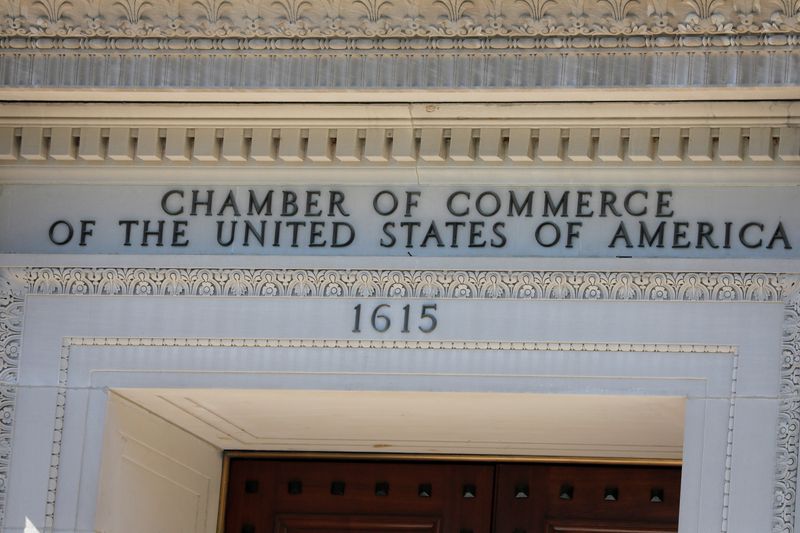By Daniel Wiessner
(Reuters) -The U.S. Chamber of Commerce, the country's largest business lobby, filed a lawsuit on Wednesday seeking to strike down a federal agency's near-total ban on employers requiring workers to sign agreements not to join rivals or launch competing businesses.
The Chamber's lawsuit in federal court in Tyler, Texas, alleges that the U.S. Federal Trade Commission lacks the power to adopt sweeping rules such as the ban on so-called noncompete agreements released on Tuesday, which is set to take effect in August.
The FTC is empowered by federal law to enforce existing antitrust laws passed by Congress, but not to enact rules determining what other type of conduct by businesses is anticompetitive, the Chamber said in the lawsuit.
"Companies will face substantial legal costs as they are forced to resort to other tools to attempt to protect their investments," the Chamber said. "And the economy as a whole will suffer as start-ups and small businesses are unable to prevent dominant firms from hiring their best employees and gaining access to their confidential information."
The lawsuit comes after tax service firm Ryan LLC on Tuesday filed the first legal challenge to the FTC rule in a different federal court in Texas.
In a statement, FTC spokesman Douglas Farrar said federal law was "crystal clear" that the agency has the power to make rules to prevent unfair methods of competition.
"Addressing noncompetes that curtail Americans' economic freedom is at the very heart of our mandate, and we look forward to winning in court," Farrar said.
The commission and Democrats and worker advocates who support the rule say it is necessary to rein in the increasingly common practice of requiring workers to sign noncompete agreements, even in lower-paying service industries such as fast food and retail. The agreements suppress workers' wages by making it difficult for them to switch jobs, they say.
The FTC on Tuesday said that banning noncompete agreements will increase worker earnings by up to $488 billion over the next decade and will lead to the creation of more than 8,500 new businesses each year.

Legal challenges to the commission's rule will almost certainly delay its implementation, regardless of the ultimate outcome, according to Matt Durham, a labor lawyer at the firm Dorsey & Whitney in Salt Lake City, Utah.
The Chamber could move for an injunction temporarily blocking the rule from taking effect as the case proceeds, but did not say whether it would do so in Wednesday's complaint.